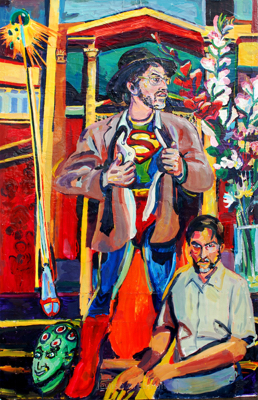
Beginning Tuesday, October 15th, the Philadelphia Museum of Jewish Art (along with the Jewish Art Salon) will be featuring a new exhibit: JOMIX – Jewish Comics: Art & Derivation. The show promises a showcase “of cutting-edge creators, reinvestigating traditional genres like superhero, political satire, romance, horror, science fiction and confessionals through a Jewish lens.”
Guest speakers are scheduled to include Joel Silverstein, Richard McBee, and Aimee Rubensteen, Exhibit Curators from the Jewish Art Salon. Introductions will be provided by Yona Verwer, President of the Jewish Art Salon, and Participating Artists include
Shay Charka, Howard Chaykin, Leela Corman, Jessica Deutsch, Aliza Donath, Dorit Jordan Dotan, Josh Edelglass, Zev Engelmayer, Liana Finck, Stuart Immonen, Miriam Katin, Scott Koblish, Michael Korosty, Yonah Lavery, Miriam Libicki, Sarah Lightman, Rutu Modan, Archie Rand, Ariel Schrag, Liat Shalom, Dov Smiley, Joshua Stulman, Arthur Szyk, Deborah Ugoretz, Eli Valley, Julian Voloj, JT Waldman, David Wander, Al Wiesner, Jack Kirby, Joel Silverstein, and Ephraim Wuensch.
A catalogue for the exhibit will be available in September.
